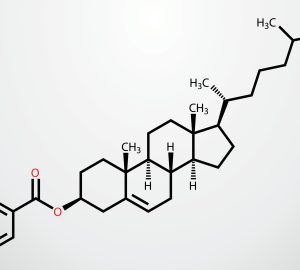geospatial science and osteoarthritis | Research at Saint Louis University is being done to use geospatial information science and electronic medical records to determine how neighborhood walking can impact osteoarthritis. Assistant professor of family and community medicine Dr. Sarah Gebaurer has received a $777,525 five-year grant from the National Institute of Arthritis to further her research into knee osteoarthritis and barriers to low-cost interventions. “Walking around your own neighborhood is the easiest and most low-cost option for patients,” Gebauer says. “If the neighborhood infrastructure isn’t well-maintained or if the patient fears for their safety, they likely won’t get in enough exercise to help manage their symptoms.” The research will explore the influence of neighborhoods on walking and painful conditions, looking at factors like social capital, violent crime rate and walkability.
predicting dementia
Researchers at Washington University School of Medicine have developed an algorithm for the risk of developing dementia due to Alzheimer’s. “Thousands of adults have volunteered for studies at Alzheimer’s research centers around the country,” says principal investigator Dr. Sarah M. Hartz, an associate professor of psychiatry. “Those studies advance the overall understanding of Alzheimer’s disease, but they give participants relatively little information about their own risk.” The algorithm uses various factors that contribute to Alzheimer’s dementia, such as age, genetics, amyloid PET scan results and brain hippocampal volumes, to estimate an individual’s absolute risk for developing early symptoms. It can be accessed online at alzheimerdementiacalculator.wustl.edu.
fighting nursing shortages
The demand for registered nurses has increased by 98.5% in the last five years, but the workforce has only increased by 17% in that same period. In Missouri, 23 schools of nursing have at least 50 open full-time faculty positions and need even more additional faculty to enroll more students. Saint Louis University is one of 11 colleges in the state awarded a grant by the Missouri State Board of Nursing to develop solutions to alleviate staffing shortages. SLU will use its $298,127 grant to provide a formalized nurse educator pathway for clinical nurse leader graduate students, develop a faculty mentoring program and offer an enhanced nurse educator apprenticeship, as well as working with clinical partners on recruitment and marketing plans.
jumping genes in alzheimer’s
Currently, a handful of gene mutations have been identified that contribute to the onset of Alzheimer’s disease. Further research is being done to investigate what other DNA changes may be helping cause dementia-related damage to the brain. In partnership with the University of Texas at San Antonio, Washington University School of Medicine has been awarded a $9 million grant from the National Institute on Aging to investigate how transposable elements influence Alzheimer’s. Transposable elements are segments of DNA that jump around the genome and are believed to come from ancient viruses and bacteria that infected our ancestors. “We want to characterize the DNA changes these transposable elements contribute to, and we want to understand whether some gene-altering techniques may block the dysregulation associated with these transposable elements to stop or delay Alzheimer’s pathology,” says Carlos Cruchaga, Ph.D., a principal investigator in the department of psychiatry at Washington University.








